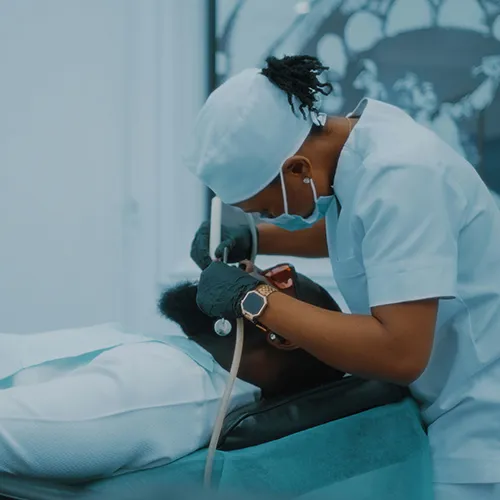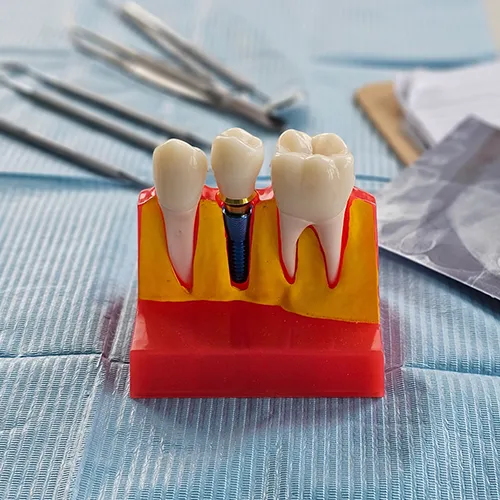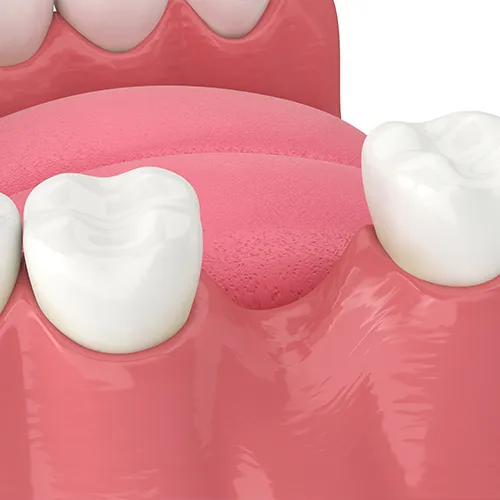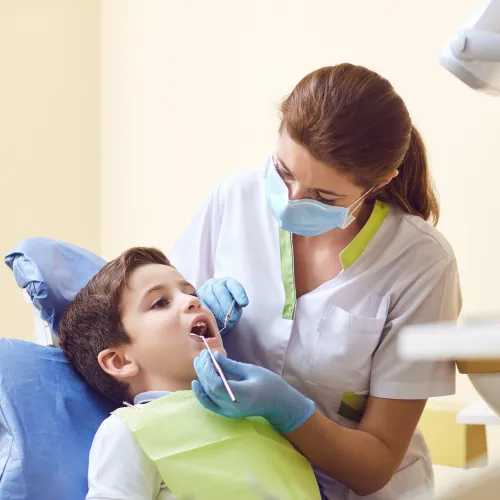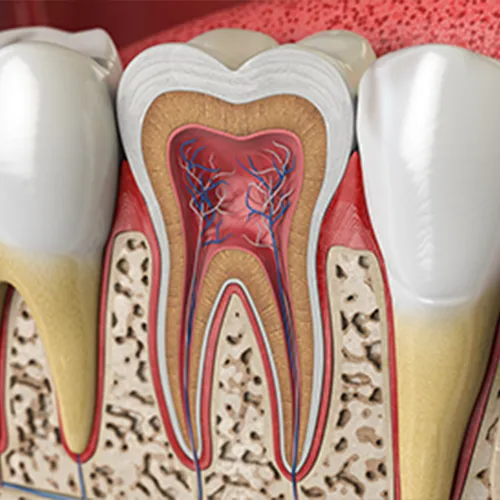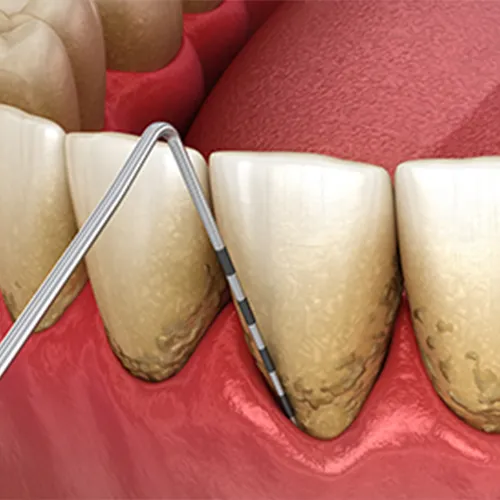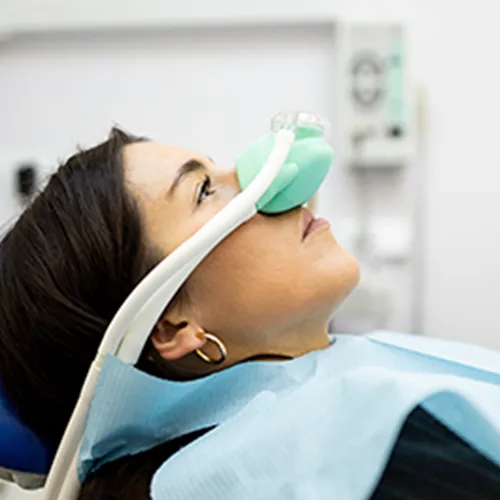Specialty Dentistry
Beyond the Snores: Decoding Sleep Apnea for Better Health
If you've ever been told you sound like a freight train when you're in the depths of slumber, or if you often wake up feeling like you ran a marathon overnight, it might not just be "bad sleep". Sleep apnea is more common than you might think, and as a dental clinic, we're here to shed light on this mysterious nighttime nuisance.
What does sleep apnea sound like?
Snoring, Gasping, and Those Troubling Pauses
The Noisy World of Snoring: Sleep apnea often kicks off with loud snoring. But this isn’t your everyday, run-of-the-mill snoring. It's more persistent, louder, and might even cause your partner to nudge you awake (or banish you to the couch!).
Gasping for Breath: Following that loud snore might be a gasping or choking sound. It's as if the person is trying to catch their breath after holding it for a while.
Silent Pauses: Then, there’s the scary part. The silence. These are pauses in breathing, and they can last anywhere from a few seconds to a minute. If you've ever listened to someone with sleep apnea, these silences can be quite alarming.
Can you test yourself for sleep apnea?
Recording Your Sleep: In the age of smartphones, it’s easy to hit record and analyze your sleeping sounds. There are even apps out there designed to detect snoring and periods of silence in your sleep.
Sleep Journals: Keeping a diary of your sleep patterns, feelings when you wake up, and daytime sleepiness can be revealing. If you find yourself constantly exhausted during the day despite sleeping 7-9 hours, it’s a red flag.
Online Questionnaires: There are several sleep apnea screening tools online, like the STOP-BANG questionnaire, that can give you an indication of your risk.
Note: While these tests can provide insights, they're not a replacement for professional diagnosis. A sleep study or a consultation with experts, like us, is crucial for an accurate diagnosis.
Can you self treat sleep apnea?
Positional Therapy: Some people experience sleep apnea primarily when they sleep on their back. Simply switching to a side-sleeping position using special pillows or body positioning devices can make a difference.
Lifestyle Changes: Losing weight, reducing alcohol consumption, and quitting smoking can significantly reduce sleep apnea symptoms in some individuals.
Oral Devices: This is where we come in! Dental devices, often called mandibular advancement devices, can help by repositioning the lower jaw and tongue. They're especially useful for those with mild to moderate sleep apnea.
Note: While these treatments can help, severe sleep apnea often requires more advanced treatments like CPAP (Continuous Positive Airway Pressure) machines. Always consult with professionals before making decisions.
Why should you care about diagnosing sleep apnea?
Cardiovascular Complications:
Untreated sleep apnea doesn't just disrupt your nightly rest—it wages war on your heart. Sleep apnea episodes can reduce the oxygen level in your blood, causing stress on your cardiovascular system. Here's the breakdown:
- High Blood Pressure: With each apnea event, the oxygen level in your blood drops. In response, your brain triggers a boost in blood flow, increasing blood pressure. Over time, this can lead to consistent hypertension, even during waking hours.
- Heart Attacks and Strokes: Due to the constant night-time interruptions and oxygen fluctuations, your heart's workload increases. This makes individuals with untreated sleep apnea more susceptible to heart attacks. Furthermore, the heightened risk of high blood pressure and potential blood clots can lead to strokes.
- Daytime Fatigue: Sure, we all have those days where we feel like a walking zombie, but with sleep apnea, it's a relentless cycle of exhaustion:
- Accidents: When you're constantly fatigued, your reflexes aren't as sharp. This makes you more prone to accidents, be it at home, work, or while driving.
- Decreased Productivity: With the brain never truly getting a chance to recharge, cognitive functions like concentration, problem-solving, and decision-making can be impaired. This can seriously impact work or school performance.
- Mood Changes: Chronic fatigue doesn't just affect the body. It can wreak havoc on mental health. Mood swings, irritability, depression, and anxiety are commonly reported in individuals with sleep apnea.
Other Health Issues:
While the immediate effects of sleep apnea might seem daunting, the long-term complications can be just as concerning:
- Diabetes: There's a significant link between sleep apnea and type 2 diabetes. The lack of quality sleep affects insulin sensitivity, making it harder for your body to regulate blood sugar.
- Liver Problems: People with sleep apnea often exhibit signs of liver function impairment. Furthermore, there's a higher likelihood of showing signs of scarring on the liver (nonalcoholic fatty liver disease).
- Medication and Surgery Complications: The presence of sleep apnea can alter how the body responds to anesthesia and some medications. This can be particularly concerning for those undergoing major surgeries. Preoperative assessments often include sleep apnea screenings to ensure patient safety.
In essence, sleep apnea isn't a lone wolf; it's part of a bigger picture impacting various facets of your health. Diagnosing and addressing it can not only give you a peaceful night's sleep but also protect you from a plethora of health complications.
Conclusion
Sleep apnea, at its core, represents more than the mere disturbances it causes during the tranquility of night. It's the silent specter that sneaks into the sanctity of our dreams, turning them tumultuous. It's not just about waking up and feeling you didn't rest at all—it's about the invisible toll it takes on our bodies, our minds, and our overall well-being.
Beyond the audible snores and choking sounds, sleep apnea intertwines with our daily lives in more profound ways than we often realize. The daytime fatigue, the foggy brain moments, and the shortness of breath are just the tip of the iceberg. Delve deeper, and the real monsters rear their heads: the potential heart issues, the lurking dangers of diabetes, and the stealthy threats to our liver.
Now, think about your life—the moments you cherish, the aspirations you harbor, and the dreams you wish to fulfill. These aren't just activities; they are experiences that require us to be at our best, both mentally and physically. And can we truly be our best selves when a condition like sleep apnea casts such a daunting shadow?
So, if even a smidgeon of what we discussed resonates with your nightly experiences, brushing it off as "just another bad night" isn't the solution. A proactive approach is. You owe it to yourself, to your loved ones, and to the life you envision living.
Reach out to us, step into our clinic, and let's chat. Let's unravel the mysteries of your sleep patterns and, together, find a path towards healthier nights and even more vibrant days. Remember, we also offer a wide variety of dental health treatments from basic cleanings and examinations to complex root canal treatments.



